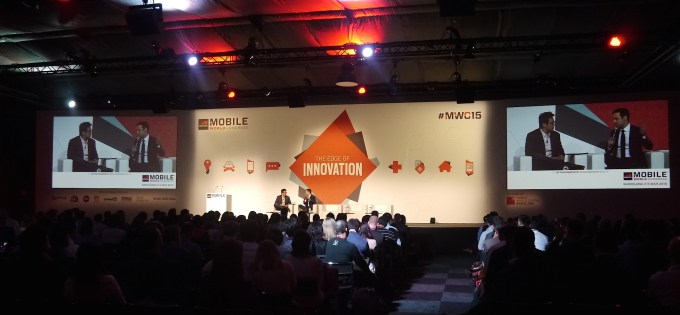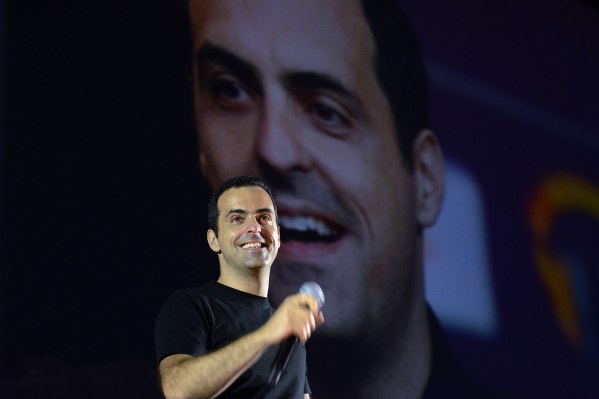Rumors that Google feels threatened by the fast-paced rise of Chinese smartphone maker Xiaomi, which has built its own UI atop Android and in China also offers its own app store (rather than pre-loading Google Play), were presumably front of mind for Xiaomi VP and former Google employee Hugo Barra today.
During an on stage interview at Mobile World Congress in Barcelona, Barra made some emollient comments, going out of his way to stress that Xiaomi’s China app store model is not something it is planning to replicate in other markets.
So, in other words, despite having aggressive global expansions plans, Xiaomi’s business strategy is not about scaling up fast in order to push Google out of the Android value pipe by swapping out Mountain View services everywhere it operates.
The reality of the Chinese smartphone market is such that Google services are not established in the way they are elsewhere. Chinese smartphone makers have used Android’s open source core to fork and package the UI with local alternatives. And while Xiaomi has also done that in China, Barra was making it plain that that is the exception for Xiaomi, not the rule.
“We have no plans to take that [the Mi app store] outside of China, because we are working with Google in every other market,” said Barra. “We are a GMS [Google Mobile Services] partner. We have been from the very first day that we sold our first device outside of China.”
He went further, adding that in his view GMS apps — including the Play Store, Gmail, YouTube and Google Maps — are “essentially necessary for survival for anyone who is outside of China”.
“We are, I believe, the number three Android app store in China today,” he added. “I’m not 100 per cent sure on that position because it’s not something that can be easily calculated but I think we’re about the number three. And I think it’s a consequence of the fact that our platform, MIUI, has become very popular, not only through our own device sales but the fact that it’s the most popular Android ROM in China. And with that comes the Mi app store.”
Last month Xiaomi held an event in Silicon Valley, to explain itself to a market it has not yet launched smartphones in but is planning to offer what Barra referred to today as its “hero accessories”. Those U.S. baby steps are about introducing Xiaomi’s brand in a place where it’s likely only known to tech bloggers, he added.
“You can… think of it as beginning of the process of building our brand in markets where people don’t yet know about us,” he said.
He also talked up the complexity of launching tightly integrated smartphone hardware plus services into a new market like the U.S., and described the market as offering ‘a less powerful value proposition’ for Xiaomi — which typically sells its smartphone hardware at near cost price, including offering premium, high end devices.
That means keeping costs down is key to Xiaomi’s business model. Barra touched on various ways it does that, including having a very limited portfolio of devices which may remain on sale for longer than the average to achieve better economies of scale and reductions in manufacturing costs; selling devices directly, meaning there are no third parties taking sales commission; and spending little or nothing on “below the line” digital advertising, relying instead on social media and online word of mouth for marketing.
“We’ve got to bring all of those services to the U.S. when and if we’re ready to launch there, and then there’s marketing — there’s a whole other set of things we have to do. And then there’s the fact… the U.S. is a carrier-led market where subsidies are very common… In some ways — and also considering the fact that GDP per capita in the U.S. is so much higher our value proposition is not as intensively powerful as it is in a market like Brazil or Russia, or Indonesia, or India — which is our biggest overseas market right now,” he said.
“That only means yes we would love to be in the U.S. with our flagship products but it is not at the top of our priority list — or anywhere near the top of our priority list,” he added.

